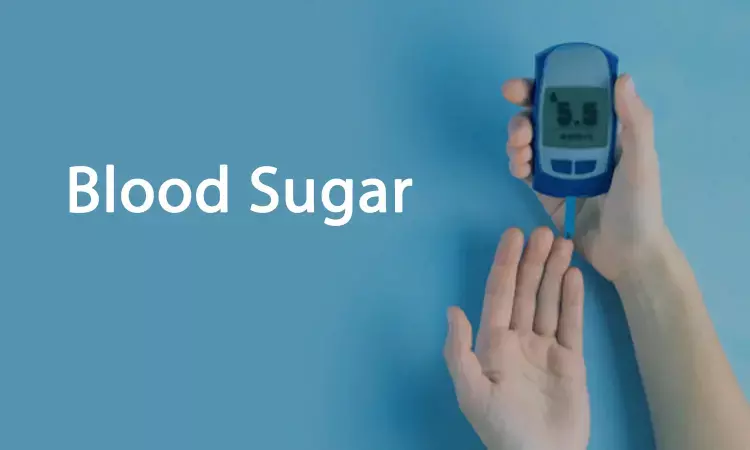- Home
- Medical news & Guidelines
- Anesthesiology
- Cardiology and CTVS
- Critical Care
- Dentistry
- Dermatology
- Diabetes and Endocrinology
- ENT
- Gastroenterology
- Medicine
- Nephrology
- Neurology
- Obstretics-Gynaecology
- Oncology
- Ophthalmology
- Orthopaedics
- Pediatrics-Neonatology
- Psychiatry
- Pulmonology
- Radiology
- Surgery
- Urology
- Laboratory Medicine
- Diet
- Nursing
- Paramedical
- Physiotherapy
- Health news
- Fact Check
- Bone Health Fact Check
- Brain Health Fact Check
- Cancer Related Fact Check
- Child Care Fact Check
- Dental and oral health fact check
- Diabetes and metabolic health fact check
- Diet and Nutrition Fact Check
- Eye and ENT Care Fact Check
- Fitness fact check
- Gut health fact check
- Heart health fact check
- Kidney health fact check
- Medical education fact check
- Men's health fact check
- Respiratory fact check
- Skin and hair care fact check
- Vaccine and Immunization fact check
- Women's health fact check
- AYUSH
- State News
- Andaman and Nicobar Islands
- Andhra Pradesh
- Arunachal Pradesh
- Assam
- Bihar
- Chandigarh
- Chattisgarh
- Dadra and Nagar Haveli
- Daman and Diu
- Delhi
- Goa
- Gujarat
- Haryana
- Himachal Pradesh
- Jammu & Kashmir
- Jharkhand
- Karnataka
- Kerala
- Ladakh
- Lakshadweep
- Madhya Pradesh
- Maharashtra
- Manipur
- Meghalaya
- Mizoram
- Nagaland
- Odisha
- Puducherry
- Punjab
- Rajasthan
- Sikkim
- Tamil Nadu
- Telangana
- Tripura
- Uttar Pradesh
- Uttrakhand
- West Bengal
- Medical Education
- Industry
Impaired fasting blood sugar, diabetes tied to higher risk of colon cancer: Study

Japan: A recent study in the Journal of Clinical Endocrinology & Metabolism has shown an association between impaired fasting blood sugar and an increased incidence of colorectal cancer (CRC).
According to the study, normal-high fasting plasma glucose (FPG), impaired fasting glucose (IFG), and diabetes mellitus (DM) were associated with a higher risk of incident CRC events. In men, CRC risk started to increase from normal-high FPG. However, the CRC risk increased only in women with DM. Thus, hyperglycemia detection can help identify people at higher risk of subsequent CRC events.
Diabetes is reported to be associated with incident CRC. However, the detailed association between FPG and incident CRC has not been understood fully. To determine the same, Hidehiro Kaneko, Department of Advanced Cardiology, University of Tokyo, Tokyo, Japan, and colleagues aimed to assess whether hyperglycemia is associated with a higher risk for CRC.
Using the JMDC Claims Database [n = 1 441 311; median age, 46 years; 56.6% men), analyses were conducted. None of the participants was taking antidiabetic medication or had a history of CRC, colorectal polyps, or inflammatory bowel disease.
Participants were categorized as normal FPG (FPG level < 100 mg/dL; 1 125 647 individuals), normal-high FPG (FPG level = 100-109 mg/dL; 210 365 individuals), impaired fasting glucose (IFG; FPG level = 110-125 mg/dL; 74 836 individuals), and DM (FPG level ≥ 126 mg/dL; 30 463 individuals).
Key findings include:
- Over a mean follow-up of 1137 ± 824 days, 5566 CRC events occurred.
- After multivariable adjustment, the hazard ratios for CRC events were 1.10 for normal-high FPG, 1.24 for IFG, and 1.36 for DM vs normal FPG.
- The researchers confirmed this association in sensitivity analyses excluding those with a follow-up of< 365 days and obese participants.
The researchers concluded, "The risk of CRC increased with elevated FPG category. FPG measurements would help to identify people at high-risk for future CRC."
Reference:
Hidetaka Itoh, Hidehiro Kaneko, Akira Okada, Yuichiro Yano, Kojiro Morita, Hikari Seki, Hiroyuki Kiriyama, Tatsuya Kamon, Katsuhito Fujiu, Satoshi Matsuoka, Sunao Nakamura, Nobuaki Michihata, Taisuke Jo, Norifumi Takeda, Hiroyuki Morita, Akira Nishiyama, Koichi Node, Hideo Yasunaga, Issei Komuro, Fasting Plasma Glucose and Incident Colorectal Cancer: Analysis of a Nationwide Epidemiological Database, The Journal of Clinical Endocrinology & Metabolism, Volume 106, Issue 11, November 2021, Pages e4448–e4458, https://doi.org/10.1210/clinem/dgab466
Dr Kamal Kant Kohli-MBBS, DTCD- a chest specialist with more than 30 years of practice and a flair for writing clinical articles, Dr Kamal Kant Kohli joined Medical Dialogues as a Chief Editor of Medical News. Besides writing articles, as an editor, he proofreads and verifies all the medical content published on Medical Dialogues including those coming from journals, studies,medical conferences,guidelines etc. Email: drkohli@medicaldialogues.in. Contact no. 011-43720751


